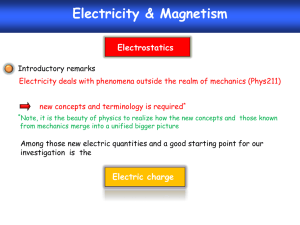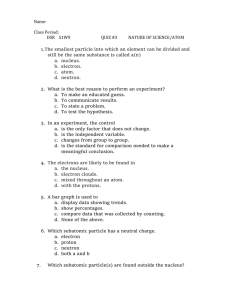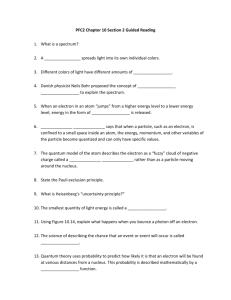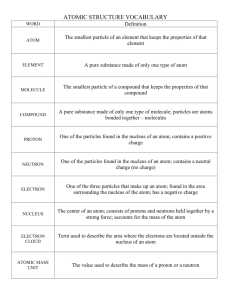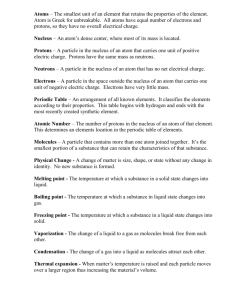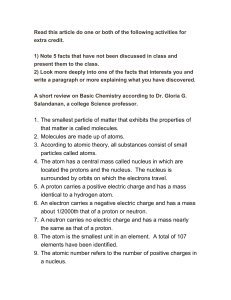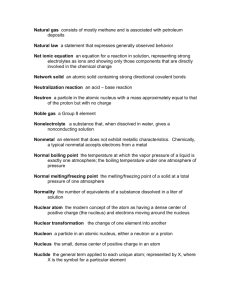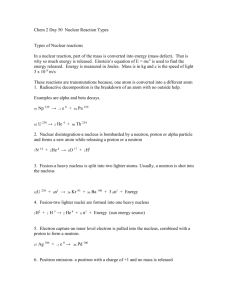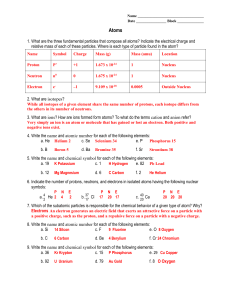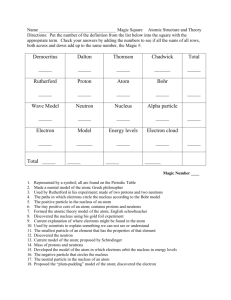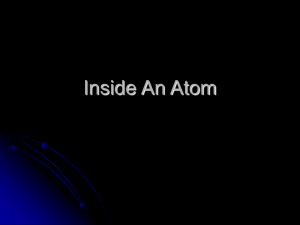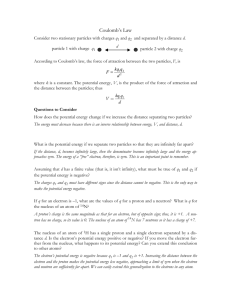Structure of the atom
advertisement
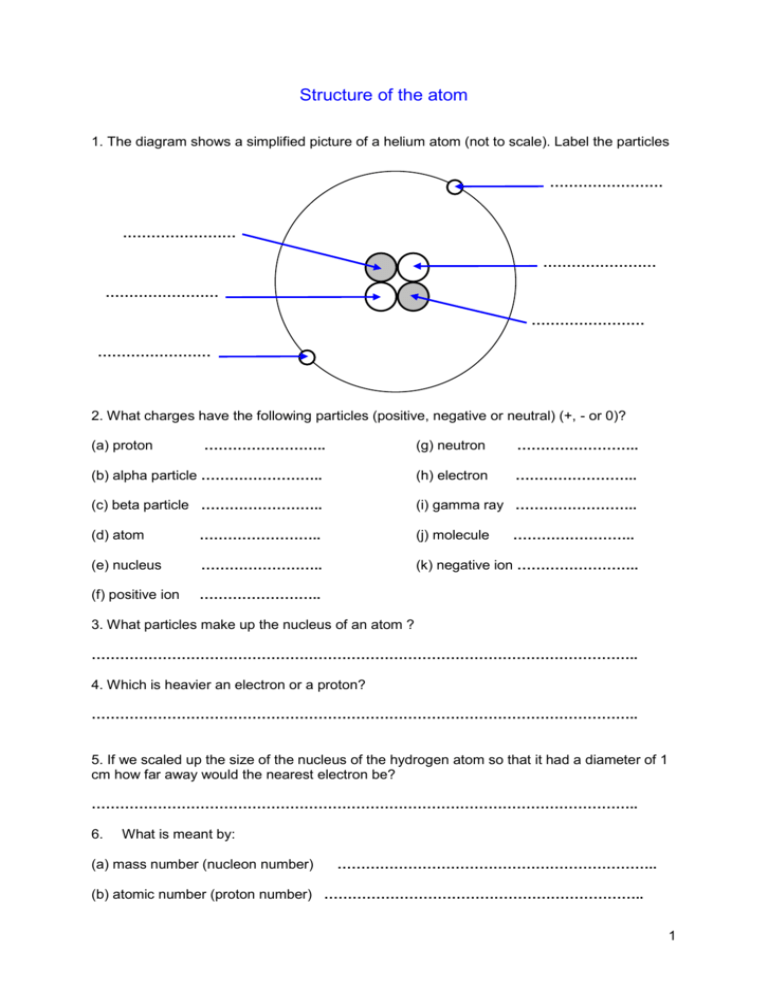
Structure of the atom 1. The diagram shows a simplified picture of a helium atom (not to scale). Label the particles …………………… …………………… …………………… …………………… …………………… …………………… 2. What charges have the following particles (positive, negative or neutral) (+, - or 0)? …………………….. (g) neutron …………………….. (b) alpha particle …………………….. (h) electron …………………….. (c) beta particle …………………….. (i) gamma ray …………………….. (a) proton (d) atom …………………….. (j) molecule …………………….. (e) nucleus …………………….. (k) negative ion …………………….. (f) positive ion …………………….. 3. What particles make up the nucleus of an atom ? …………………………………………………………………………………………………….. 4. Which is heavier an electron or a proton? …………………………………………………………………………………………………….. 5. If we scaled up the size of the nucleus of the hydrogen atom so that it had a diameter of 1 cm how far away would the nearest electron be? …………………………………………………………………………………………………….. 6. What is meant by: (a) mass number (nucleon number) ………………………………………………………….. (b) atomic number (proton number) ………………………………………………………….. 1 7. A nucleus of uranium has a nucleon number of 235 and a proton number of 92. (a) how many protons are there in the nucleus? ………………………………….. (b) how many neutrons are there in the nucleus? ………………………………….. 8. The following table shows the structure of five particles. Particle A B C D E Protons 20 20 22 27 27 Neutrons 21 22 24 30 30 Electrons 20 20 21 28 25 Which is: (a) a negative ion ………………….. (b) which two are isotopes of the same element ………………….. (c) which is a positive ion with a single charge ………………….. (d) which a positive ion with a double charge ………………….. 2
